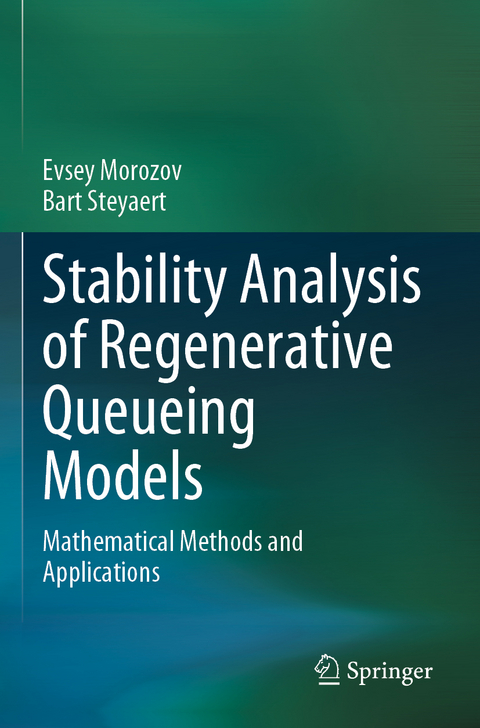
Stability Analysis of Regenerative Queueing Models
Springer International Publishing (Verlag)
978-3-030-82440-2 (ISBN)
The stability analysis of stochastic models for telecommunication systems is an intensively studied topic. The analysis is, as a rule, a difficult problem requiring a refined mathematical technique, especially when one endeavors beyond the framework of Markovian models.
The primary purpose of this book is to present, in a unified way, research into the stability analysis of a wide variety of regenerative queueing systems. It describes the theoretical foundations of this method, and then shows how it works with particular models, both classic ones as well as more recent models that have received attention. The focus lies on an in-depth and insightful mathematical explanation of the regenerative stability analysis method.The unique volume can serve as a textbook for students working in these and related scientific areas. The material is also of interest to engineers working in telecommunications field, who may be faced with the problem of stabilityof queueing systems.
lt;p> Prof. Evsey Morozov is a chief researcher at the Institute of Applied Mathematical Research of the Karelian Research Centre, Russian Academy of Sciences, and professor at the Institute of Mathematics and Information Technologies at Petrozavodsk State University, Petrozavodsk, Russia.
Dr. Bart Steyaert has been working as a researcher at the SMACS Research Group, Department TELIN, at Ghent University, Belgium..
1 Introduction.- 2 The Classical GI/G/1 and GI/G/m Queueing Systems.- 3 Tightness and Monotonicity.- 4 Generalizations of Multiserver Systems.- 5 State-dependent systems.- 6 N-models.- 7 Multiclass Retrial Systems with Constant Retrial Rates.- 8 Systems with State-Dependent Retrial Rates.- 9 A Multiclass Multiserver System with Classical Retrials.- 10 Other Related Models.
"The book contains a large number of (sometimes simple, sometimes demanding) problems. ... The variety of models indicates that the regenerative method is a powerful feature to study queueing systems which in this book are almost only single station queues. ... the book can be recommended for working applied probabilists and engineers who want to become familiar with the regenerative techniques for usage in their own application fields." (Hans Daduna, zbMATH 1487.60003, 2022)
“The book contains a large number of (sometimes simple, sometimes demanding) problems. … The variety of models indicates that the regenerative method is a powerful feature to study queueing systems which in this book are almost only single station queues. … the book can be recommended for working applied probabilists and engineers who want to become familiar with the regenerative techniques for usage in their own application fields.” (Hans Daduna, zbMATH 1487.60003, 2022)
| Erscheinungsdatum | 24.09.2022 |
|---|---|
| Zusatzinfo | XI, 185 p. 24 illus. |
| Verlagsort | Cham |
| Sprache | englisch |
| Maße | 155 x 235 mm |
| Gewicht | 314 g |
| Themenwelt | Mathematik / Informatik ► Informatik ► Netzwerke |
| Schlagworte | Balance Equations • Multiclass Systems • Multiserver Systems • Queueing Systems • Regeneration • renewal process • Retrial Systems • stability • State-Dependent Systems |
| ISBN-10 | 3-030-82440-3 / 3030824403 |
| ISBN-13 | 978-3-030-82440-2 / 9783030824402 |
| Zustand | Neuware |
| Haben Sie eine Frage zum Produkt? |
aus dem Bereich


